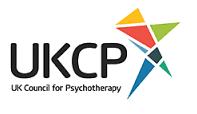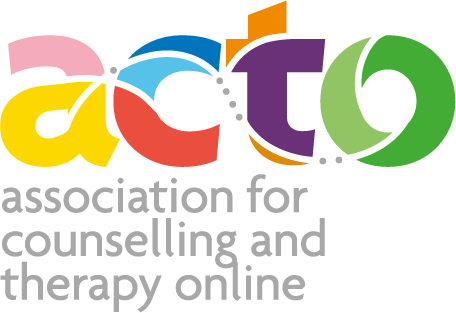My original training was in the Humanistic approach to counselling and psychotherapy. To become a registered psychotherapist with the main professional body in this country (the United Kingdom Council for Psychotherapy), I completed four years of training, culminating with the award of MSc psychotherapy.
Over the course of this training, I found particular resonance with the ideas from Gestalt psychotherapy and so went deeper into this and other more ‘experiential’ modalities. Following the completion of my MSc I completed several more training programmes, including group facilitation at the London Gestalt Centre, and Focusing with the London Focusing Institute. With a passion for mastery and continued professional development, I have explored many theoretical and philosophies of therapeutic practice. Influences on my work include ideas from Jungian depth psychology, trauma informed somatic approaches, and more recently, the map provided by the Enneagram.
In 2012, I spent the year travelling back and forth to the US to complete my meditation teacher training. For 3 years I taught both MBSR and MBCT programmes, including teaching mindfulness meditation to counsellors and psychotherapists. I am also a regular participant in retreats; here in the UK, in Europe and in the US; group retreats as well as solitary. I am a Vajrayana practitioner in the Tibetan Kagyu lineage.
With my ongoing CPD and as a practicing Buddhist, increasingly there is spiritual (or transpersonal) flavour to my work as a therapist and supervisor. For me, it does not make sense to separate mind, body, spirit, and soul; nor to split ourselves from our world and the cosmos – we are all of these things; therefore, I work with the whole human being and the totality of the field within which life is experienced. I am currently finishing my book that describes how my humanistic training and spiritual curiosity have come together to inform my practice.
The Humanistic approach to counselling and psychotherapy is the bedrock of my work. The Humanistic view can seem quite radical: it does not consider personal deficit at the root of problems, nor does it consider anything needs ‘fixing’. Instead, it trusts the capacities for growth and wholeness are inherent in each of us as human beings.
For me, the modality of Gestalt psychotherapy is an incredibly powerful way of helping people explore who they are, how their life is shaping, and how these two interact. Like other Humanistic approaches, Gestalt is an ‘existential-phenomenological’ approach, and so in our work together you will come to notice:
- the focus is placed on what it is to be human, with all the highs and lows, joy and suffering inherent to life
- the invitation to share your own experiences, what it like to be you
I will help you embrace the totality of your experience, to move away from the predominance of the thinking mind and more into the lived experience. This is what might seem ‘radical’, given psychotherapy is often referred to as ‘talking therapy’. However, with a trust in intrinsic wholeness, the more of our experience we can bring into our awareness, the less weight we give to our thoughts, beliefs, stories.
“The definition of insanity is doing the same thing over and over again and expecting different results” – Albert Einstein
So often we find ourselves thinking and talking about life events that happen in another time (whether that be recollecting the past, or anticipating the future), and in another place. We can feel like a head with a body tagging along; yet in that mode of living, we miss so much vital experience – vital because it IS our vitality; to feel our world as much as we think about it. Gestalt moves away from the ‘talking about’ to direct experience. Our work together will invite you to develop an embodied awareness and recognition of what is happening from one moment to the next. In other words, breaking the habit of ‘there and then’ and moving to life in the ‘here and now’.
The ‘here and now’ methodology of Gestalt is exactly that. You and I will meet, and we will explore what arises in the room, real time. Gestalt theory calls this meeting ‘contact’; and how you and I meet in relationship will help us explore, and perhaps reveal, the quality of contact you make with others and with your life-world in general. In this way, the relationship between therapist and client becomes a container; an alchemical vessel in which the process of transformation can be held. For many, the relational encounter of psychotherapy is a chance to learn and practice intimacy, opening to and sharing oneself with another human being. The wounds of childhood can be repaired in the relationship with the “good enough” other. Awareness of the embodied-experience in real-time with the therapist offers a chance to live out and work through fixed patterns of relating laid down in formative years.
“We are made through relationship, wounded through relationship…it makes sense therefore that we are healed through relationship” – John Welwood
My being a Buddhist undoubtedly flavours my work as a psychotherapist. An obvious link you might make is a capacity to be present in the here and now; and indeed, you might ask to explore the practice of meditation to support your therapeutic journey. Buddhism not only influences my method of psychotherapy, it also informs my View: of human nature, of how we suffer, and how we heal. When such spiritual frames meet psychotherapy, they are often referred to as ‘transpersonal’ approaches.
Such approaches share common roots with the existential-phenomenological, i.e. the trust in human potential and commitment to values such as mutuality, respect, responsibility, kindness, and the fostering of the client’s subjective experience. And yet the word, transpersonal, points to how the approach moves beyond the personal; to some, this means seeing a ‘bigger picture’ or communion with nature, to others it’s exploration of a realm that is timeless, and many experience it through resting in mind or consciousness. The exact work in a transpersonal therapy is hard to describe because it depends on what emerges from the alchemical container created by client and therapist.
“The I-Thou in the here and now” – Claudio Naranjo
In my experience, more people are coming to therapy to explore this full arc of human experience; setting out to discover a more enduring essence beyond the individualised ego or personality aspects of self. One system I have come to deeply appreciate in the integration of the psychological and the spiritual aspects of what it is to be human is the enneagram. On the spiritual level, the enneagram – a nine pointed figure within a circle – describes nine facets of ultimate reality. On the psychological level, we see nine correlates describing our state when we are identified with our egos or our personality. Each of the nine types on the enneagram is therefore a collection of psychological, emotional, spiritual and physical facets that shape how we think, feel and act. The enneagram therefore offers us a great map to explore relational dynamics at work, in the family, with one’s friends, and in intimate partnership.
Existential questions: Who am I? What is my life about? Where am I going?
Personal development: What is important to me? Where am I getting stuck? How do I want my life to evolve?
Embodiment: What does it mean to live an embodied life? How do I embrace more of my experience and live more fully?
Relationship: What stops me forming connection with others? How can I trust it is okay to be vulnerable? How do I find more intimacy with friends and loved ones?
Spiritual integration: How do I travel my spiritual path and yet remain in the everyday world? How do I find community as I tread this lonely path? Read more about my work on integrating psychological growth with the spiritual path
For online sessions: £70
For face to face (Wilbury Clinic, Hove): £80
I allocate a proportion of my practice hours at concessionary rates, please contact me for availability.

Registered psychotherapist
The UK Council for Psychotherapy is the leading organisation for psychotherapists and psychotherapeutic counsellors in the UK. I practice according to their code of ethics

Online therapy provider
My training to deliver online counselling and psychotherapy meets the requirements of the ACTO.

Listed practitioner
The non-dual therapy register is for practitioners who practice with presence, are rooted in stillness and offer a field of awareness to help unravel suffering
